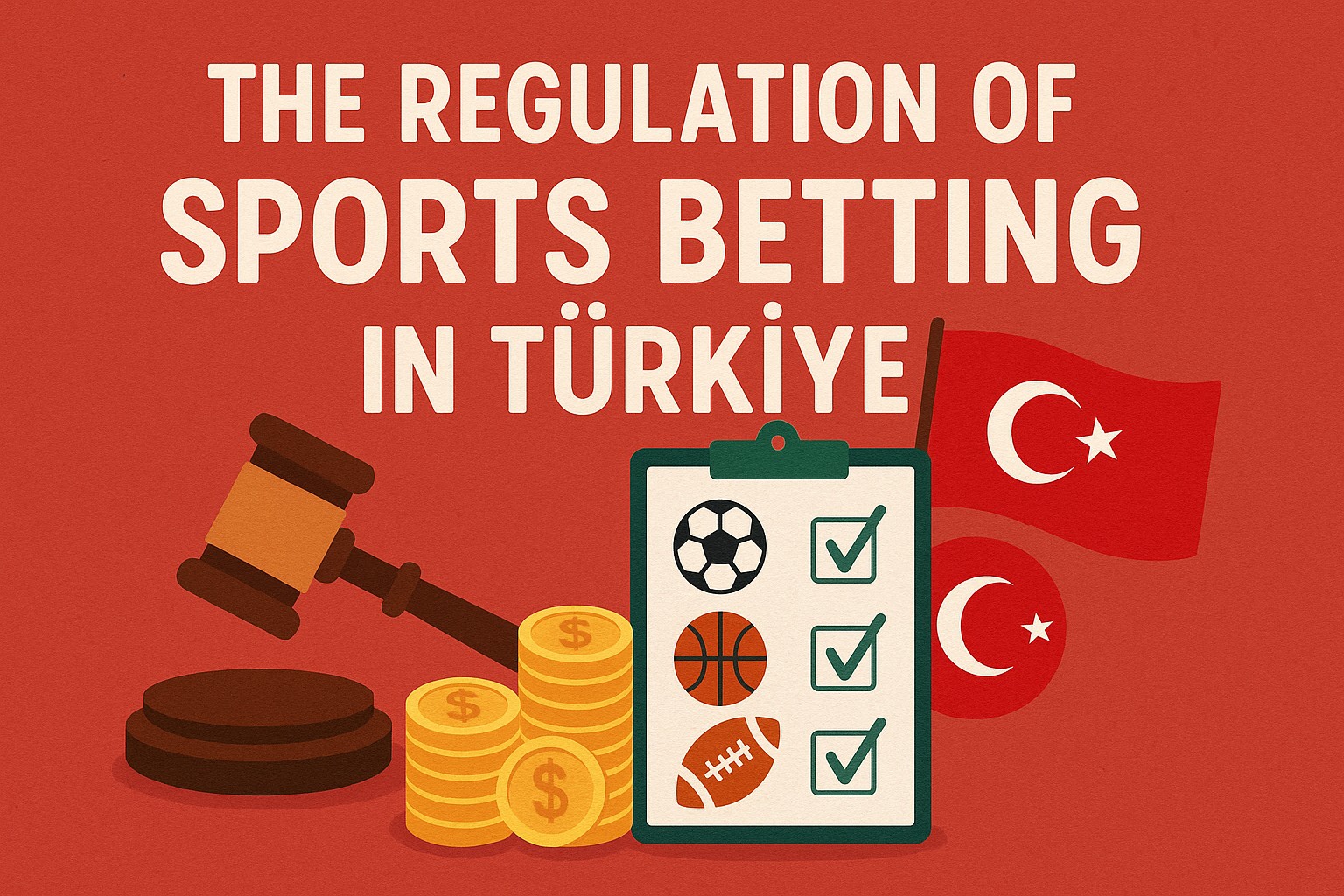THE REGULATION OF SPORTS BETTING IN TÜRKİYE

Introduction
Sports betting, and especially online betting on football matches, has become one of the most closely monitored areas of gaming law in Türkiye.
The Turkish legal system maintains a centralised and highly restrictive regime, ensuring that only state-authorised operators may organise betting activities. Unlike some European jurisdictions where online betting markets have been liberalised, unauthorised gaming in Türkiye is treated as a matter of both public order and criminal law.
This Post provides an overview of the regulatory framework, highlights compliance obligations for operators, and outlines the enforcement measures imposed on both domestic and international platforms seeking to engage with Turkish punters.
Legal Framework
The key legislation comprises:
- Law No. 7258 on Wagering and Games of Chance in Football and Other Sports Competitions sets the foundation for betting on sports and empowers the Directorate General of ‘Spor Toto Organization’ (Teşkilat Başkanlığı) to act as the principal regulatory authority;
- Law No. 5651 on the Regulation of Publications on the Internet and Combating Crimes Committed by Means of Such Publications, establishes strict online content rules, licensing requirements, and data obligations;
- Article 228 of the Turkish Penal Code (TPC) criminalises unauthorised gambling, with penalties including imprisonment and significant fines.
In addition, Regulation No. 27932 on Remote Gaming forbids the provision of online gambling services without a licence issued by the ‘Spor Toto Organization’, and Law No. 6112 on Media Services limits advertising of betting services.
Together, these legal instruments create a multi-layered regulatory system that extends across the Internet, finance, broadcasting, and criminal law.
Online Betting and Enforcement Measures
Online betting is one of the most heavily supervised areas of Turkish law. Operators wishing to provide services to Turkish punters must first obtain a licence.
Failure to do so renders their activities illegal, with serious consequences both for operators and punters.
Enforcement is carried out on several ways:
- Blocking access: Internet Service Providers (ISPs) are required to block unauthorised betting websites. The Information and Communication Technologies Authority (ICTA) has authority under Law No. 5809 on Electronic Communications to order proactive blocking.
- Financial restrictions: Turkish financial institutions are obliged to prevent and block transactions related to unlicensed gaming, ensuring that illegal operators cannot receive payments.
- Criminal liability: Under Article 228 of the TPC, organising unauthorised betting can result in imprisonment, while participants may also face fines.
This comprehensive approach reflects Türkiye’s commitment to preventing illegal betting and protecting punters, particularly regarding football, the most popular sport in the country.
Licensing and Compliance Requirements
Licensing is not merely a formality but a strict precondition for operating in Türkiye. Under Law No. 7258, the Ministry of Youth and Sports is the competent authority for issuing sports betting licences. Only licensed operators may offer betting services in Türkiye, and the licensing process is tied to demonstrating compliance with technical, financial, and ethical standards.
Compliance also extends to related areas:
- Law No. 5651 obliges hosting and service providers to remove unauthorised content and cooperate with blocking orders.
- Anti-Money Laundering (AML): Operators must adopt AML programmes under Law No. 5549 on the Prevention of Laundering Proceeds of Crime, supervised by the Financial Crimes Investigation Board (MASAK).
- Data protection: Licensed operators are expected to implement robust safeguards for user data, given the sensitive financial and personal information processed in online betting.
Failure to comply with any of these obligations can lead to suspension of services, cancellation of licenses, and criminal prosecutions.
Advertising and Promotion Restrictions
The advertising of betting services is tightly controlled. Law No. 6112 prohibits misleading or unauthorised advertisements and imposes specific restrictions on radio, television, and online media. Article 8 of this Law forbids content that may encourage illegal betting or mislead consumers about the legality of services.
Violations carry serious reputational and financial risks: operators may face fines; bans on future advertising; and even broader sanctions on their operations. For this reason, marketing strategies for betting services must be carefully aligned with Turkish law.
Implications for Operators and Participants
Türkiye’s approach to regulating sports betting demonstrates a zero-tolerance stance towards unauthorised platforms. Domestic operators must navigate a highly complex compliance landscape, whilst international companies face effective exclusion unless they obtain authorisation from the ‘Spor Toto Organization’.
For punters, the risks are equally real: accessing or promoting illegal platforms can lead to fines and, in some cases, criminal charges. Public officials face even stricter sanctions under Article 257 of the TPC if they are found to facilitate illegal betting.
Conclusion
Sports betting in Türkiye remains under strict state control, with football betting at the heart of the regime. The combination of constitutional, administrative, and criminal law ensures that unlicensed operators face strong enforcement, whilst licensed entities must continuously maintain compliance with data, AML, and advertising regulations.
For both domestic and foreign stakeholders, a clear understanding of this legal framework is essential. Operators considering entry into the Turkish sports betting market must approach with caution, ensuring full licensing and compliance, whilst punters are strongly advised to engage only with state-authorised platforms.
For further information and advice on sports betting in Türkiye, email the Head of our Turkish Law Practice, Att. Gurur Gaye Günal, at gunal@valloni.ch.